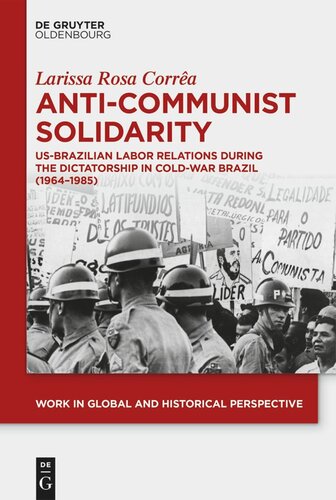

Most ebook files are in PDF format, so you can easily read them using various software such as Foxit Reader or directly on the Google Chrome browser.
Some ebook files are released by publishers in other formats such as .awz, .mobi, .epub, .fb2, etc. You may need to install specific software to read these formats on mobile/PC, such as Calibre.
Please read the tutorial at this link: https://ebookbell.com/faq
We offer FREE conversion to the popular formats you request; however, this may take some time. Therefore, right after payment, please email us, and we will try to provide the service as quickly as possible.
For some exceptional file formats or broken links (if any), please refrain from opening any disputes. Instead, email us first, and we will try to assist within a maximum of 6 hours.
EbookBell Team

5.0
18 reviewsSince the 1960s, many influential Latin Americans, such as the leaders of student movements and unions, and political authorities, participated in exchange programs with the United States to learn about the American way of life. In Brazil, during the international context of the Cold War, when Brazil was governed by a military dictatorship ruled by generals who alternated in power, hundreds of union members were sent to the United States to take union education courses. Did they come back “Americanized” and able to introduce American trade unionism in Brazil? That is the question this book seeks to answer. It is a subject that is as yet little explored in the history of Latin American labor and international relations: the influence of foreign union organizations on national union politics and movements. Despite the US’s investment in advertising, courses, films and trips offered to Brazilian union members, most of them were not convinced by the American ideas on how to organize an “authentic” union movement – or, at least, not committed to applying what they learned in the States.